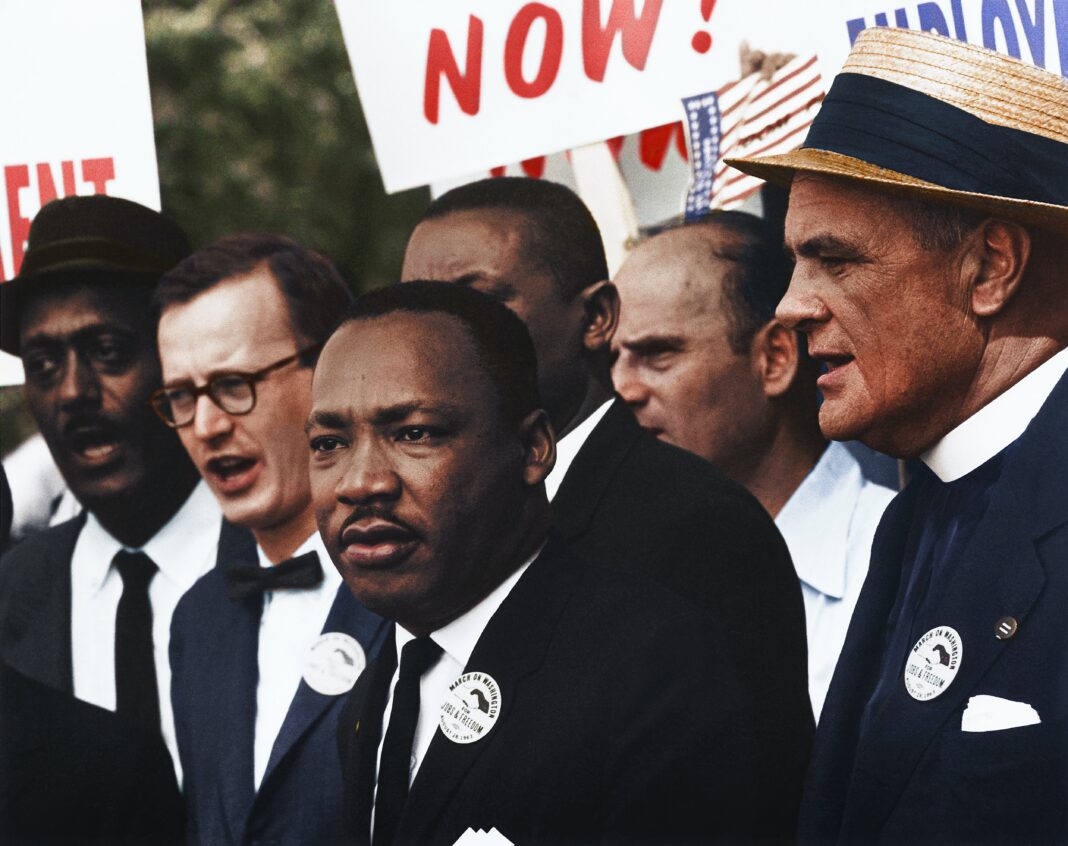Image Source: Rowland Scherman, Civil Rights March on Washington, D.C. [Dr. Martin Luther King, Jr. and Mathew Ahmann in a Crowd], August 28, 1963, photograph, Unsplash, August 17, 2020.
As I researched nonprofit leaders and innovators for my recent book, Innovation for Social Change, I noticed four key traits of nonprofit innovators. The good news: these are traits that any of us can sharpen with some intentionality and practice.
Trait 1: Nonprofit innovators are driven and passionate. They may be slightly obsessed. They don’t have to be flashy or seek the limelight, but they feel strongly about the needs around them and the consequences if they don’t act. Despite overwhelming obstacles, they step up because they love what they do and feel compelled—and that feeling is contagious. Think of leaders such as Martin Luther King Jr. or Mother Teresa.
Trait 2: Successful nonprofit innovators know their superpowers and their limitations. This quality helps them stay focused, prioritize, and say no to things. It may sound simple, but knowing your own comparative advantage requires some thoughtful introspection.
He was far too humble to call it his “superpower,” but Fred Rogers had such a clear understanding of his comparative advantage and such a driving passion that it helped him to focus and say no to things that would have distracted him from his vision. He turned down lucrative offers from television studios. He turned down offers to mass produce his puppets and sell them to children—he felt that building trust with children was more important. Knowing his comparative advantage helped him to stay on course and eventually create a wildly successful nonprofit production company.
What puts the fire your belly? What was the last opportunity you said no to so that you could focus on what you do best?
Trait 3: Nonprofit innovators are fearless and relentless problem solvers. They embrace creative collaborations. They boldly challenge the status quo and seek ways to make things better.
How to Be a Founder: How Entrepreneurs can Identify, Fund and Launch Their Best Ideas is a great read for aspiring nonprofit founders. Authors Alice Bentinck and Matt Clifford suggest some self-assessment questions: “Think about ways you have challenged convention. . . . When did you go out of your way to build or learn something or put yourself on an unusual path? What have you done that’s seemed odd or counterintuitive to most people?” How would you answer these questions?
Trait 4: Nonprofit innovators are persuasive. Because there are far more innovative ideas than there are resources, we as innovators have to be persuasive. We must find ways to make our ideas stand out from the crowd and make a compelling case to stakeholders that our good idea is a great idea.
People won’t always agree with us. But Archbishop Desmond Tutu of South Africa, for example, did not let threats, jail, harassment, or racism get in the way of speaking truth to power. He spent his career making unpopular arguments. Along with some other reformers, he played a key role as a highly influential social entrepreneur, transforming the rights of Black South Africans and democracy in his country, winning the Nobel Peace Prize. He once said, “don’t raise your voice, improve your argument.” This is sound advice
Do you recognize yourself in these traits? You may find that you are already modeling some or all of them. Or you might recognize a trait that you would like to strengthen. The good news is you can sharpen these skills with awareness and practice.

